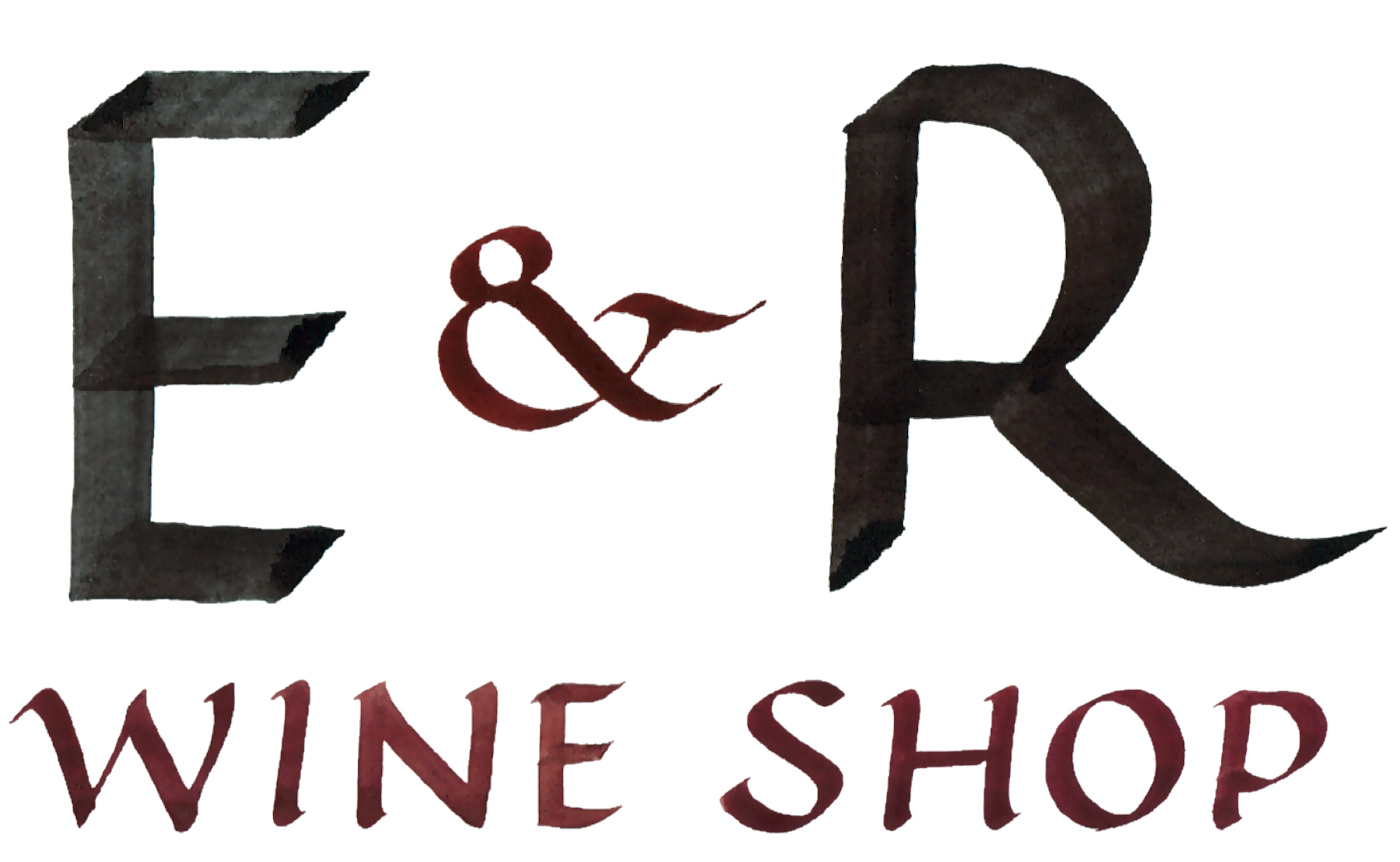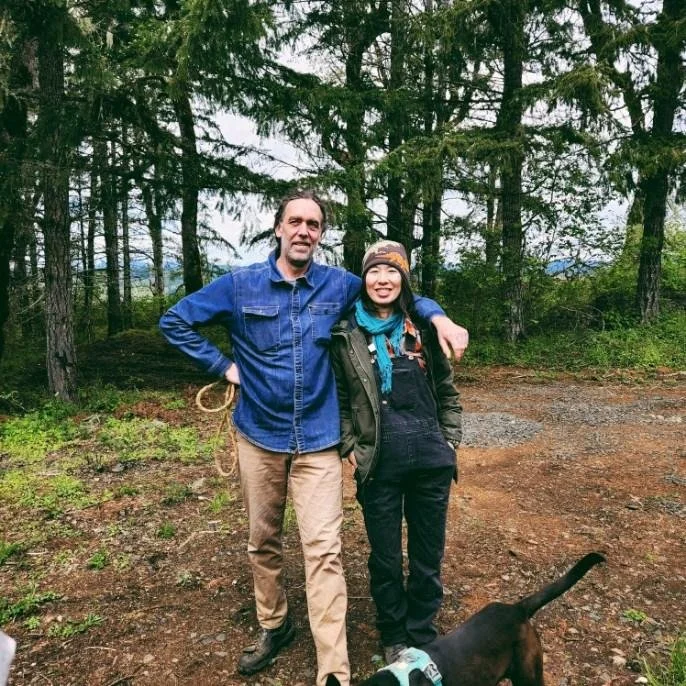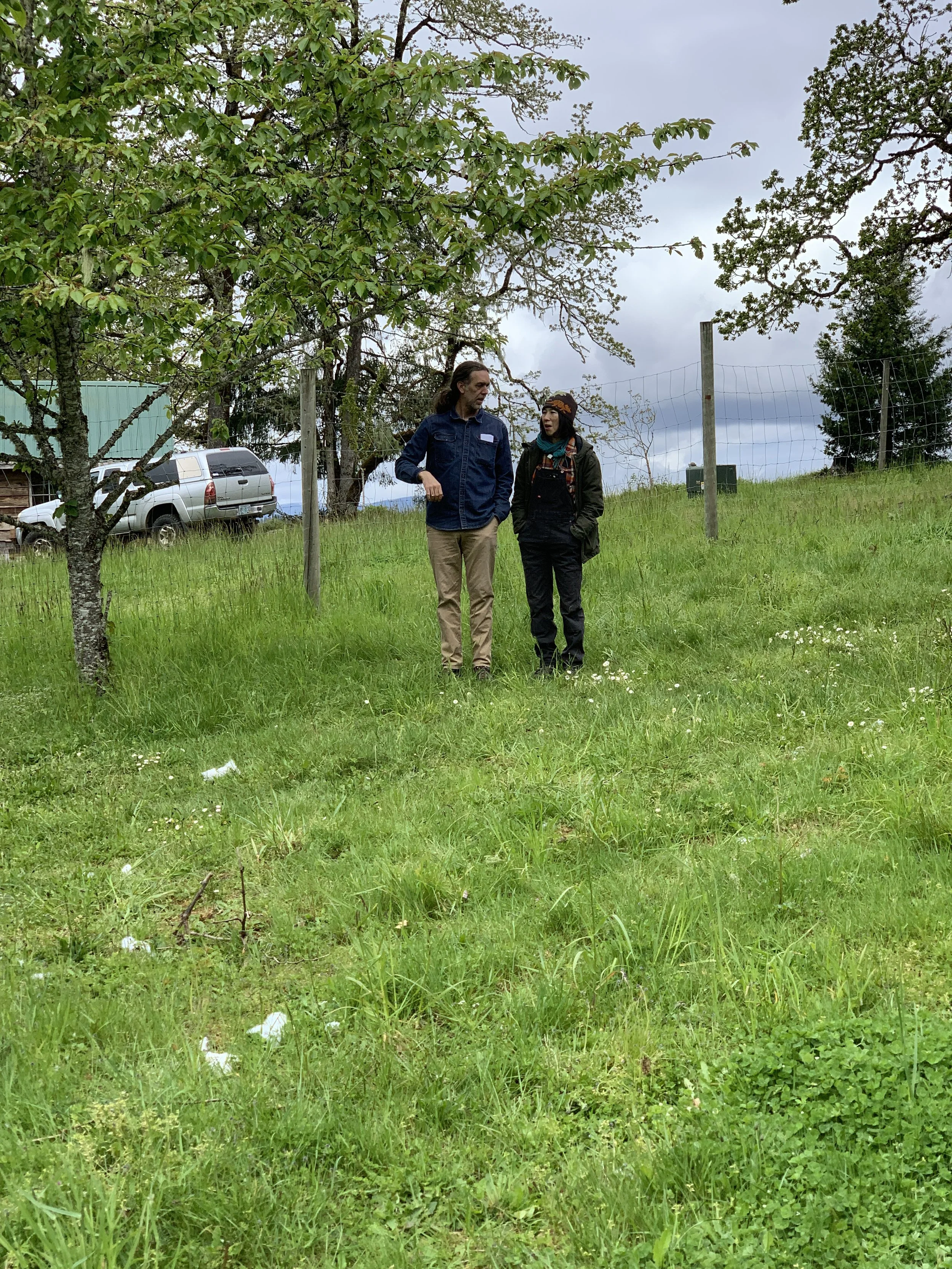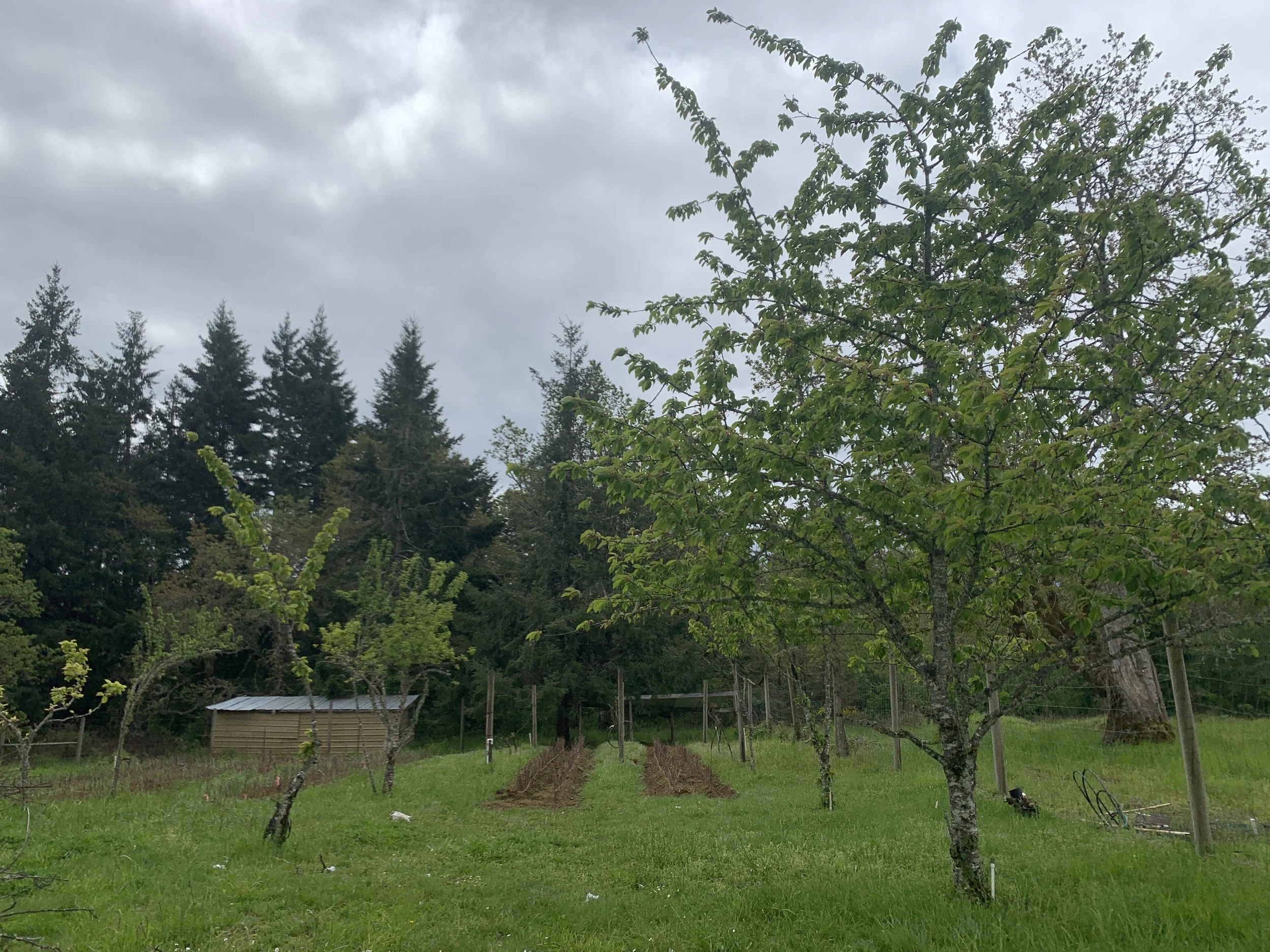Shiba-Wichern - Willamette Valley, Oregon
Chris Wichern & Akiko Shiba at their new property, May 2022
Akiko Shiba: Lady of the Vines
It is a favorite saying of winemakers that “it all begins in the vineyard,” but few domestic producers live the gospel like Akiko Shiba. She prefers to be a lady of the sunshine and vines, even though her expertise in the cold, dark cellar is equally well-rounded and precise.
Despite not owning a vineyard until this past February, Akiko’s vintage season begins with pruning in winter and persists through bloom and fruit set and the whole long summer of canopy management until finally harvest. For her, fieldwork is at the center of everything. It is the time and effort required to solidify her relationship with her wine.
Akiko’s approach comes in part from her first experiences making wine. She grew up in Tokyo, and nurturing a lifelong obsession with flavor, she worked at a craft beer bar while studying journalism. Here, she met two important people. First, her future husband and business partner Chris Wichern, and second, a famous editor who asked Akiko to join his staff for a new cooking magazine. In the course of her work interviewing chefs and restaurateurs, she found herself particularly interested in her assignments about beer, wine, and sake. When Chris moved to Germany to work as an engineer, Akiko joined him imagining it might be the perfect place to study beer more seriously.
The first challenging step in pursuit of her beer education was to learn German. She spent eight months going to language school five days a week, where she befriended a fellow student from Peru whose husband owned a local winery. Suffice it to say, she was redirected by Riesling.
Akiko spent the next five years completing her studies in winemaking. Part of her coursework included a practical semester for which she worked in Baden, near the border with Alsace and Switzerland. She spent most of her time in the vineyard, and although she was always angling for more cellar work back then, now she’ll tell you how lucky she was to get that experience.
When Akiko and Chris moved to Oregon in 2009, she was surprised to see the disconnect between the vineyard and the winery. In Germany, working harvest meant picking the grapes in the morning and pressing them in the afternoon, but in Oregon, Akiko found herself emerging from whole days spent topping in a dark cellar and only first seeing the vintage’s fruit when it was delivered to the winery crush pad. In her experience, this was not the way to make wine.
And so, when Akiko and Chris started Shiba-Wichern in 2013, they negotiated contracts that allowed them to farm their own grapes. Akiko explained to E&R that she’s tried to purchase grapes by the ton, but that her motivation for making the wine just wasn’t there. By working in the vineyard all season, year after year, she is able to notice small details, differences in cluster size or canopy for example, that guide her decisions in the winery.
In addition to her diligent observations and work in the field, Akiko is careful to only use small picking bins (FYB’s in industry speak, “f*ing yellow bins” – although hers are blue) so that her grapes remain pristine and uncrushed during harvest. She also tries to move her wine as gently as possible. This secret she learned from Gantenbein Winery in Switzerland many years ago when she asked, after tasting their wines, what the magic was. Gravity they told her. So her use of a pump is kept to a minimum. She keeps her cellar cold and allows her wine to stay in barrel long enough to truly harmonize. And finally, always a lover of food and flavor, her wines are built for dining with balance, acidity, and clean, vineyard derived flavors taking first priority.
Akiko works in the way that she does because it is how she knows to make the best wine possible, but she also imagines how different it could be if Oregon wineries hired permanent staff who moved more fluidly between the winery and the vineyard. For her own winery, the key is to stay small enough that she can personally work in every vineyard and check on every barrel. Rather than grow substantially in size, Akiko wants to slow down and focus. She wants to see what she could do if she had her own vineyard and her own winery.
To this aim, after years of negotiating contracts and sharing production space, she and Chris embarked on a new chapter this past February (2022) with the purchase of a property in Willamina near Art + Science and Holden Wines. When E&R visited a few months later, Shiba-Wichern already had its first vine nursery, planted with cuttings from Evasham Wood, and renovations were underway to transform the large barn into a production facility.
cuttings in the nursery surrounded by fruit trees
The place, while still in the making, feels like a family cellar in Europe, where winegrowing is not something you do so much as an integrated part of daily life, like caring for a garden. In the small space of their wine garden, Akiko and Chris have planted Chardonnay, Pinot Noir, Auxxerois, Pinot Blanc, Pinot Gris, Gewürztraminer, Rieslaner (a cross between Riesling and Sylvaner), Traminer, Kerner, Pinot Meunier, and Grüner Veltliner. For her red wines, Akiko believes vine age is of utmost importance, but at the new property, at 700’ elevation amid hundreds of acres of trees and ocean airflow, a dream of a white field blend is beginning to take shape.
This is Akiko’s first chance to do it her way start to finish, to experiment, to have space to mess it up and learn from the mistakes, to truly examine the quality of Oregon wine under her own microscope and begin to tease out where the potential really is. E&R can’t wait to see what she will discover.
THE WINES:
For now, new releases of Shiba-Wichern just landed at E&R…
(BK)



